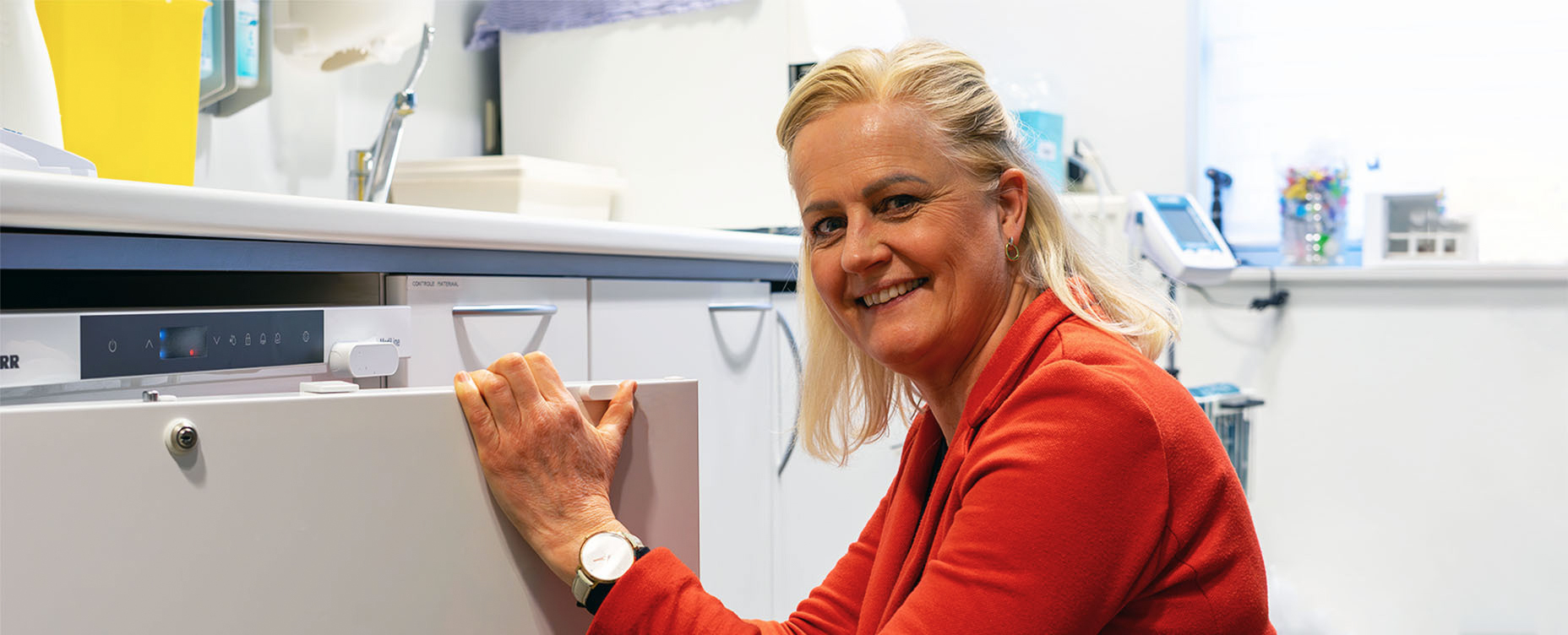Proper medication handling and storage are crucial for any medical facility. For Medisch Centrum Dichteren (MCD), a general practice doctor’s office in Doetinchem, the Netherlands, ensuring the safety of flu shots was a critical yet challenging aspect of their daily operations.
Every year, vulnerable individuals—such as the elderly and those with weakened immune systems—receive flu vaccines to protect themselves during flu season. Medisch Centrum Dichteren offers flu vaccinations as part of its services, helping these groups stay healthy and well-protected.
A compliance challenge in vaccine storage
Flu vaccines are delicate medications that require strict storage conditions to remain effective and comply with medical regulations. They must always be kept at temperatures between 2°C and 8°C. If the temperature drops below 2°C, the vaccines must be discarded immediately. They are no longer usable if it exceeds 8°C for more than two hours.
At Medisch Centrum Dichteren, staff members manually checked the fridge’s temperature once a day and logged the reading. However, this method proved unreliable—if a temperature fluctuation occurred between checks, it went unnoticed. During a recent NPA audit, inspectors flagged this as a compliance risk, highlighting the need for a more accurate and continuous monitoring system.
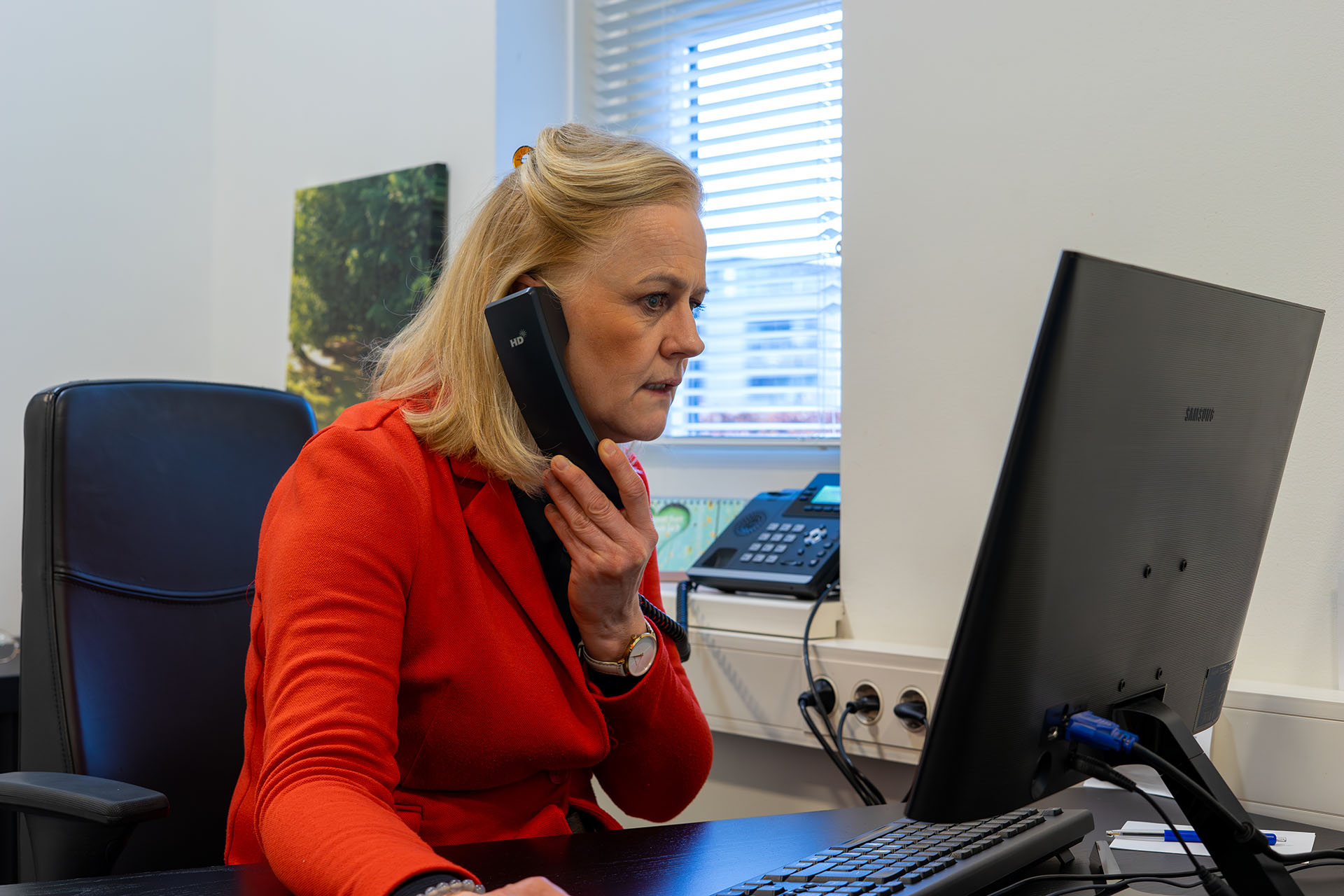
As a nurse for chronic patients and the person responsible for quality care, Petra van Elst took this feedback seriously. The NPA audit, which takes place every three years, assesses key aspects of patient care, ensuring the practice meets strict medical standards. Passing these audits grants the facility a quality certification, reinforcing its commitment to patient safety.
Determined to find a better solution, Petra turned to her son, Abe Haverkamp, who is a partnership manager at Homey. If anyone knew how to automate this process and ensure compliance, it was him.
Maintaining the temperature balance with Homey
Abe approached this challenge by setting up Homey Pro in the office and installing a Frient Temperature Sensor inside the fridge. This setup ensured real-time temperature tracking and instant alerts for the staff. Whenever the temperature exceeds safe limits, Homey immediately logs a record in the timeline, pushes alerts to the doctors’ phones, and announces an audible warning through the Sonos speakers in the back office.
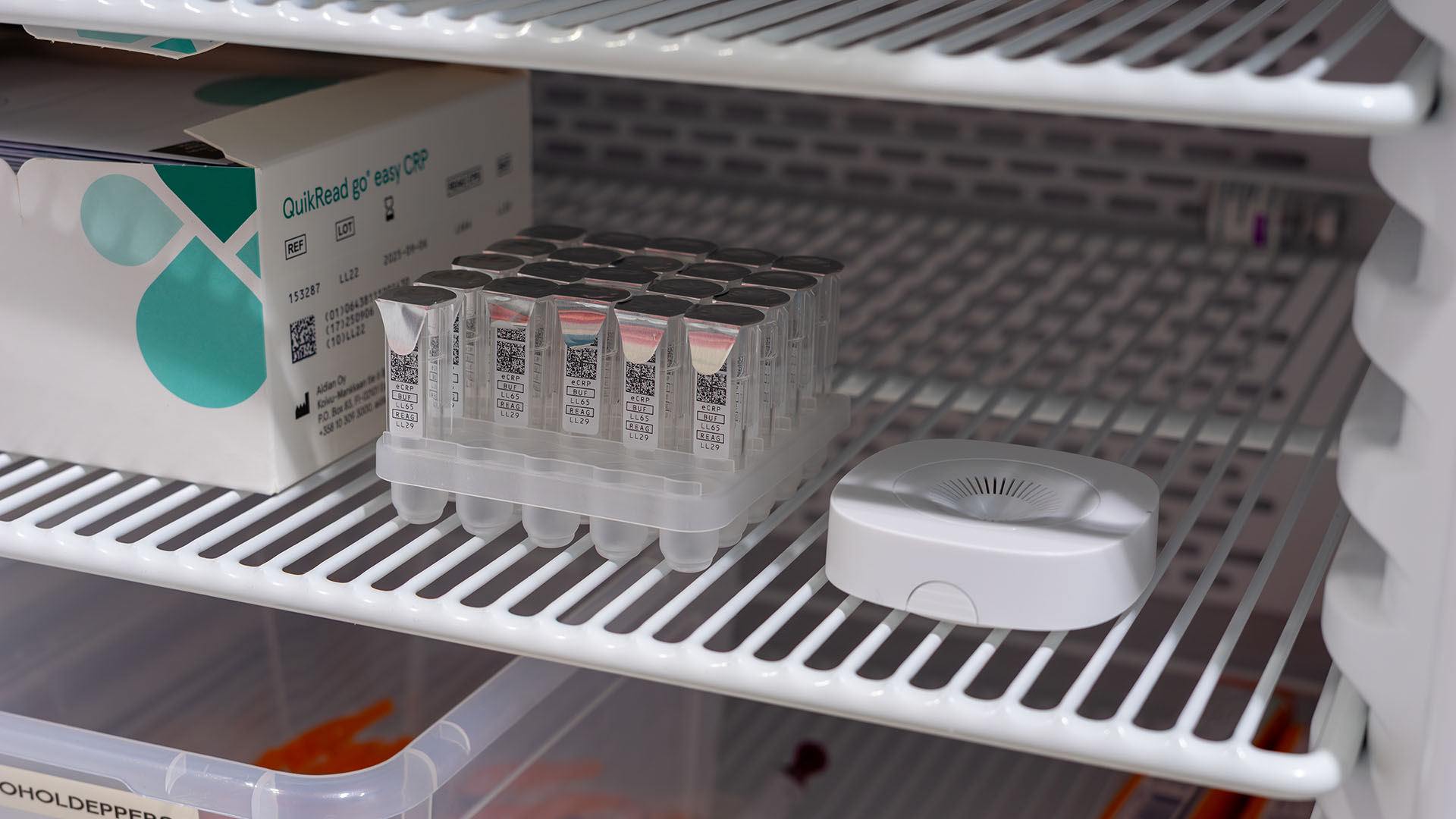
To ensure MCD had detailed records for NPA audits, Homey also logged the highest and lowest temperatures of the day in a Google Spreadsheet. This gave staff a complete digital inspection log, making compliance easy and eliminating the need for manual temperature tracking.
For high temperatures, Abe took things a step further with the Chronograph app in Homey. Since flu vaccines can tolerate temperatures above 8°C for up to two hours, an alert doesn’t go off immediately. Instead, Homey starts a two-hour countdown timer. A critical warning is sent if the temperature stays high beyond this window. Homey cancels the alert if the fridge cools down in time, preventing unnecessary disruptions.
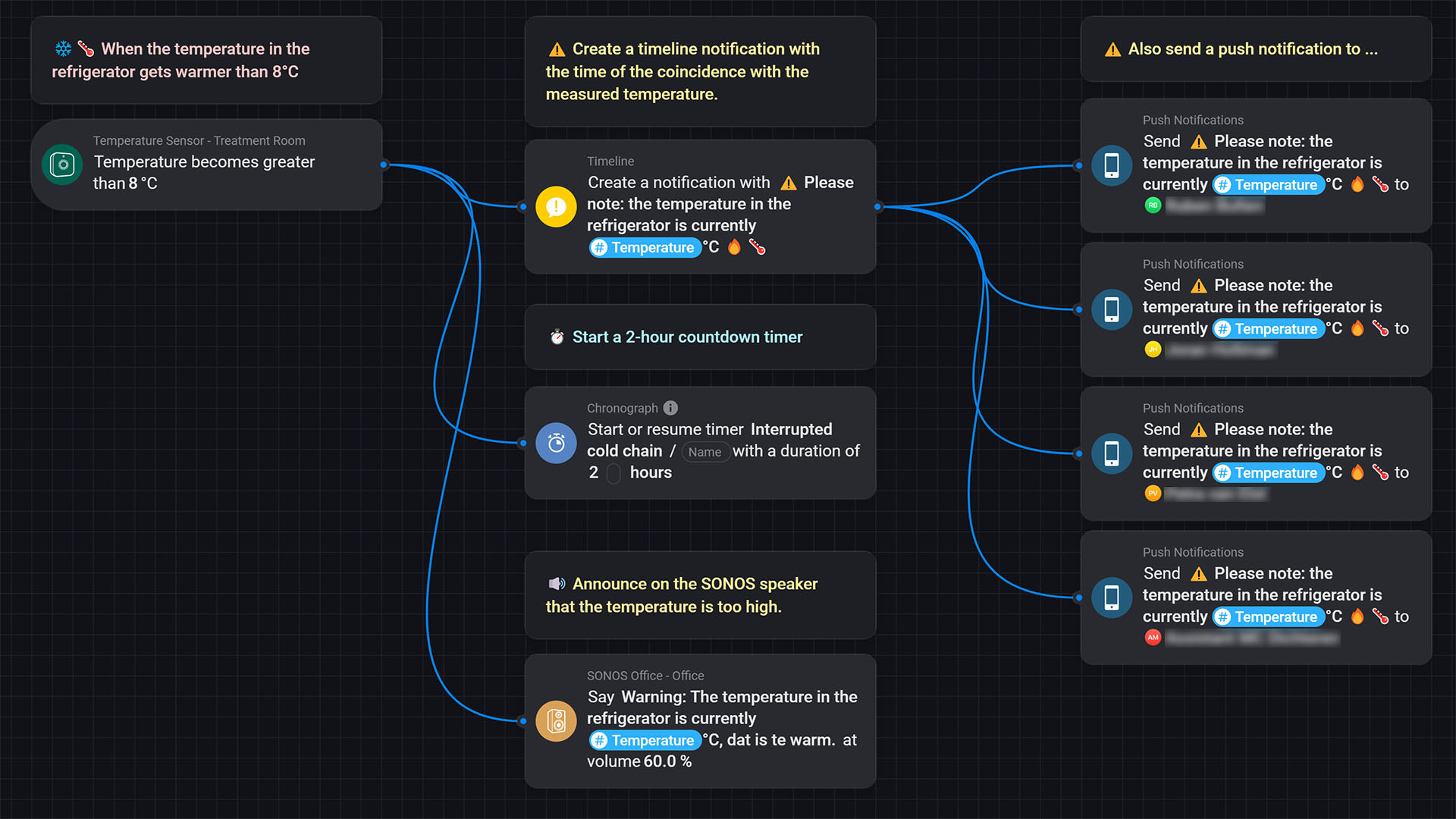
Beyond real-time monitoring, Homey also tracks daily temperature trends. With automated logging, Petra and her team can now spot patterns that were impossible to catch with manual checks. They noticed temperature spikes at 6 AM and 6 PM, likely caused by the fridge’s built-in cooling cycle adjusting itself. These insights help them optimize their vaccine usage and ensure medicine remains safely stored at all times.
Preventing costly mistakes with smart door alerts
One of the most significant risks to vaccine storage wasn’t just temperature fluctuations—it was human error. Staff occasionally left the fridge door open too long, allowing warm air to seep in and jeopardize the medication inside. With no way to detect this in real time, the only safeguard was hoping someone noticed before it was too late.
Abe solved this by installing a Frient Entry Sensor Pro on the fridge door, which is fully integrated with Homey Pro. Now, if the door stays open for more than five minutes, Homey immediately sends a push notification to the doctors’ phones and announces a warning through the Sonos speakers in the back office. This ensures that staff can act quickly before the temperature rises to unsafe levels.
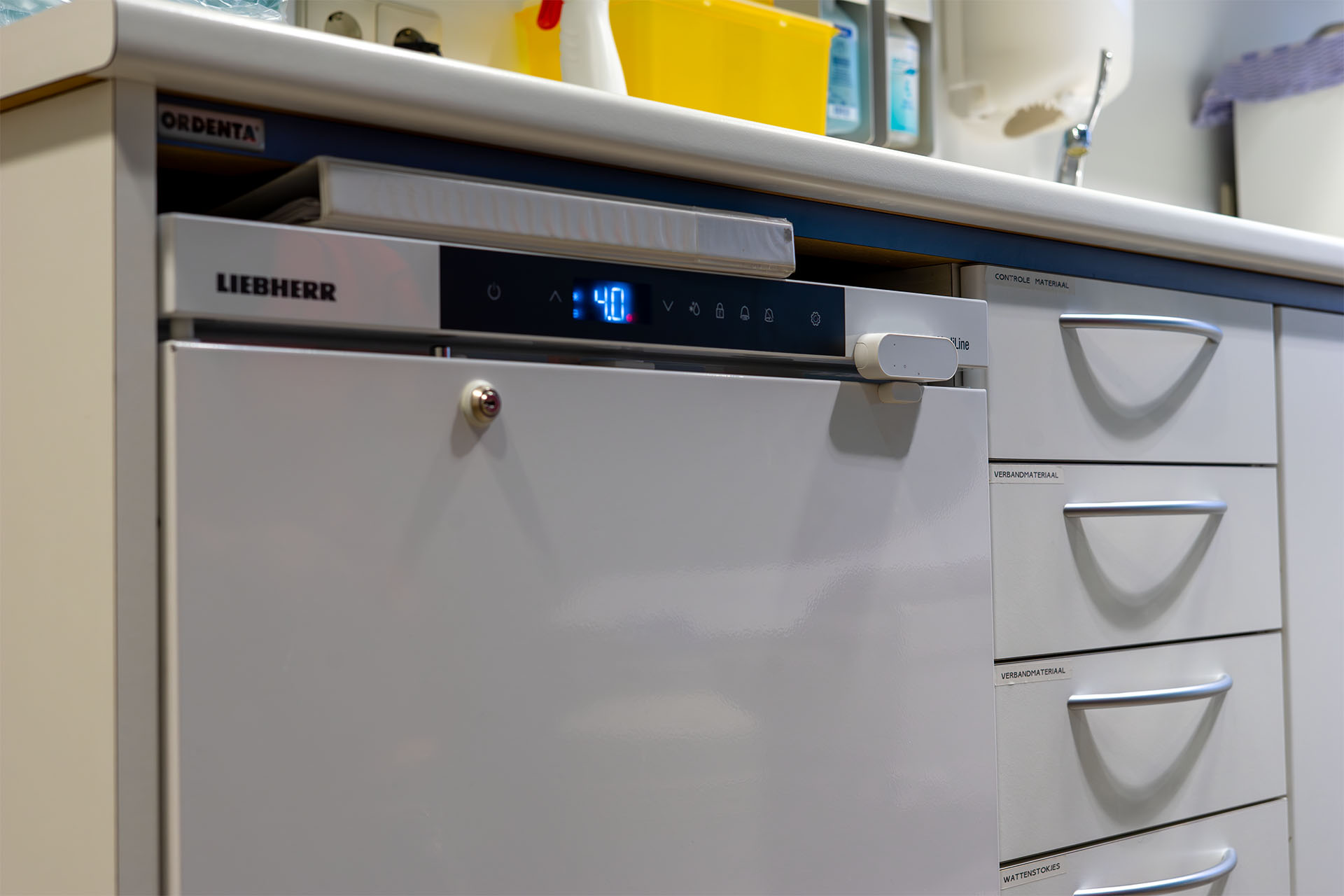
Since implementing Homey, the clinic has had greater peace of mind in keeping their medicine safe. What was once an unpredictable risk is now fully automated and controlled, ensuring flu vaccines remain safe, effective, and ready for patients.
Expanding Homey’s role in the clinic
With vaccine storage under control, the clinic is exploring ways to expand its use of Homey, with security potentially being the next focus. Smart locks and motion sensors could be added to better protect medical supplies. This would ensure that only authorized staff have access, helping to reduce the risk of lost or misplaced medication. Petra also wants to track medication expiration dates automatically. This would save time and prevent expired products from being used.
Power monitoring is another priority. A recent outage shut down Homey and fridge monitoring, leaving the clinic unaware of temperature changes. To prevent this, they plan to connect Homey to a backup power source, keeping it running during short blackouts. A smart plug will monitor the fridge’s power status and send an alert if the power cuts out. If needed, they can act fast before the vaccines are at risk.
With Homey, Medisch Centrum Dichteren is taking clinic automation to the next level—making healthcare safer, smarter, and more efficient for both staff and patients.








